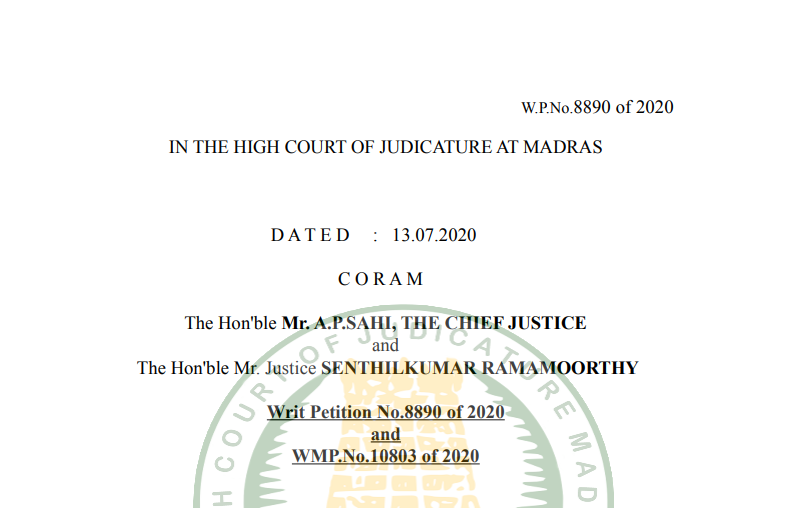Madras HC in the case of M/s.P.R.Mani Electronics Versus Union of India
Table of Contents
Case Covered:
M/s.P.R.Mani Electronics
Versus
Union of India
Facts of the case:
The validity of Rule 117 of the Central Goods and Service Tax Rules, 2017 (the CGST Rules) is under challenge in this writ petition on the grounds that it is ultra vires Section 140 of the Central Goods and Services Tax Act, 2017 (the CGST Act) and infringes Articles 14 and 300A of the Constitution, and the Petitioner further prays that the Respondents should be directed to permit the Petitioner to file Form GST TRANS – 1 either electronically or manually to claim the transitional input tax credit of Rs.4,70,008/-.
Observations of the Court:
In summary, those factors are the use of peremptory or negative language, which raises a rebuttable presumption that the provision is mandatory; the object and purpose of the statute and the provision concerned; the stipulation or otherwise of the consequences of non-compliance; whether substantive rights are affected by non-compliance; whether the time limits are in relation to the exercise of rights or availing of concessions; or whether they relate to the performance of statutory duties. In this case, the peremptory word “shall” is used. The relevant rule deals with the time limit for availing Transitional ITC by carrying it forward from the credit balance under tax legislation which has been repealed and replaced by the CGST Act. Thus, the object and purpose of Section 140 clearly warrant the necessity to be finite. ITC has been held to be a concession and not a vested right. In effect, it is a time limit relating to the availing of a concession or benefit. If construed as mandatory, the substantive rights of the assessees would be impacted; equally, if construed as directory, it would adversely impact the Government’s revenue interest, including the predictability thereof. On weighing all the relevant factors, which may not be conclusive in isolation, in the balance, we conclude that the time limit is mandatory and not a directory.
We also note that Rule 117 specifies that the return in Form GST TRAN – 1 is required to be filed electronically on the common portal. This requirement is not satisfied by handing over the form in person to the Sales Tax Collection Inspector, Tiruvannamalai. Consequently, in our view, the Petitioner has completely failed to make out a case to direct the Respondents to permit the Petitioner to file Form GST TRAN -1 and claim the Transitional ITC of Rs.4,70,008/-. Needless to say, if any dispensations are granted by the tax authorities with regard to availing of Transitional ITC, whether by filing Form GST TRAN-1 or otherwise, and to which the Petitioner may be entitled, this order will not preclude the Petitioner from making a claim for Transitional ITC.
Related Topic:
Madras HC Order in the case of Greenwood Owners Association Versus The Union of India
The judgement of the Court:
As the result, the writ petition is dismissed. Consequently, the connected miscellaneous petition is closed. No costs.
Read & Download the full copy in pdf:
 ConsultEase Administrator
ConsultEase Administrator
Consultant
Faridabad, India
As a Consultease Administrator, I'm responsible for the smooth administration of our portal. Reach out to me in case you need help.








